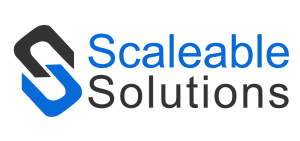Objective:
To enhance patient care, streamline document management, improve operational efficiency, and ensure compliance with healthcare regulations like HIPAA.
Scenario:
A healthcare provider faces challenges managing a large volume of patient records, medical forms, insurance claims, and regulatory documents. Manual processes lead to inefficiencies, delays in patient care, and non-compliance risks.
Solution: Document Management System (DMS)
Centralized Document Storage:
Secure, cloud-based storage for all medical and administrative documents, such as patient records, consent forms, and billing information. Authorized healthcare professionals can access these documents in real-time across departments, ensuring up-to-date information is always available.
Automated Workflows:
Automate critical processes like patient intake, medical history collection, billing approvals, and insurance claims. This reduces administrative workload, speeds up patient onboarding, and ensures timely insurance reimbursements.
HIPAA Compliance and Data Security:
The DMS ensures compliance with HIPAA by providing encryption, role-based access controls, and audit trails. Sensitive patient data is securely stored, and only authorized personnel can access or modify confidential information.
Advanced Search and Retrieval:
Healthcare staff can quickly locate documents using keywords, patient IDs, or dates, allowing them to access patient records, lab results, or medical reports in seconds. This ensures fast and accurate decision-making.
Collaboration Across Departments:
Multiple departments, such as doctors, nurses, and billing staff, can collaborate on the same patient records in real-time, improving coordination, reducing delays, and enhancing patient care.
Benefits:
Improved Patient Care: Doctors and medical staff can access accurate patient information quickly, leading to faster and more informed diagnoses and treatments.
Operational Efficiency: Automating administrative tasks like patient registration and billing speeds up processes and reduces errors, allowing staff to focus on patient care.
HIPAA Compliance & Data Security: The system safeguards sensitive data with encryption and access controls, ensuring regulatory compliance and protecting patient privacy.
Faster Billing & Claims Processing: Automating billing and insurance claims reduces errors and speeds up the reimbursement process, improving cash flow for healthcare providers.
Cost Savings:
By reducing paper usage and minimizing manual processes, the DMS lowers administrative and storage costs.
Example:
A hospital using a DMS can streamline patient admissions. As soon as a patient fills out intake forms, their medical records are instantly stored and accessible to relevant departments. Physicians can review medical history, test results, and prescriptions without delays, while the billing team simultaneously processes insurance claims, ensuring smooth coordination between treatment and financial operations.
In conclusion, a DMS is a vital tool for healthcare providers, helping them improve patient care, ensure compliance, enhance security, and operate more efficiently by digitizing and automating document management.


